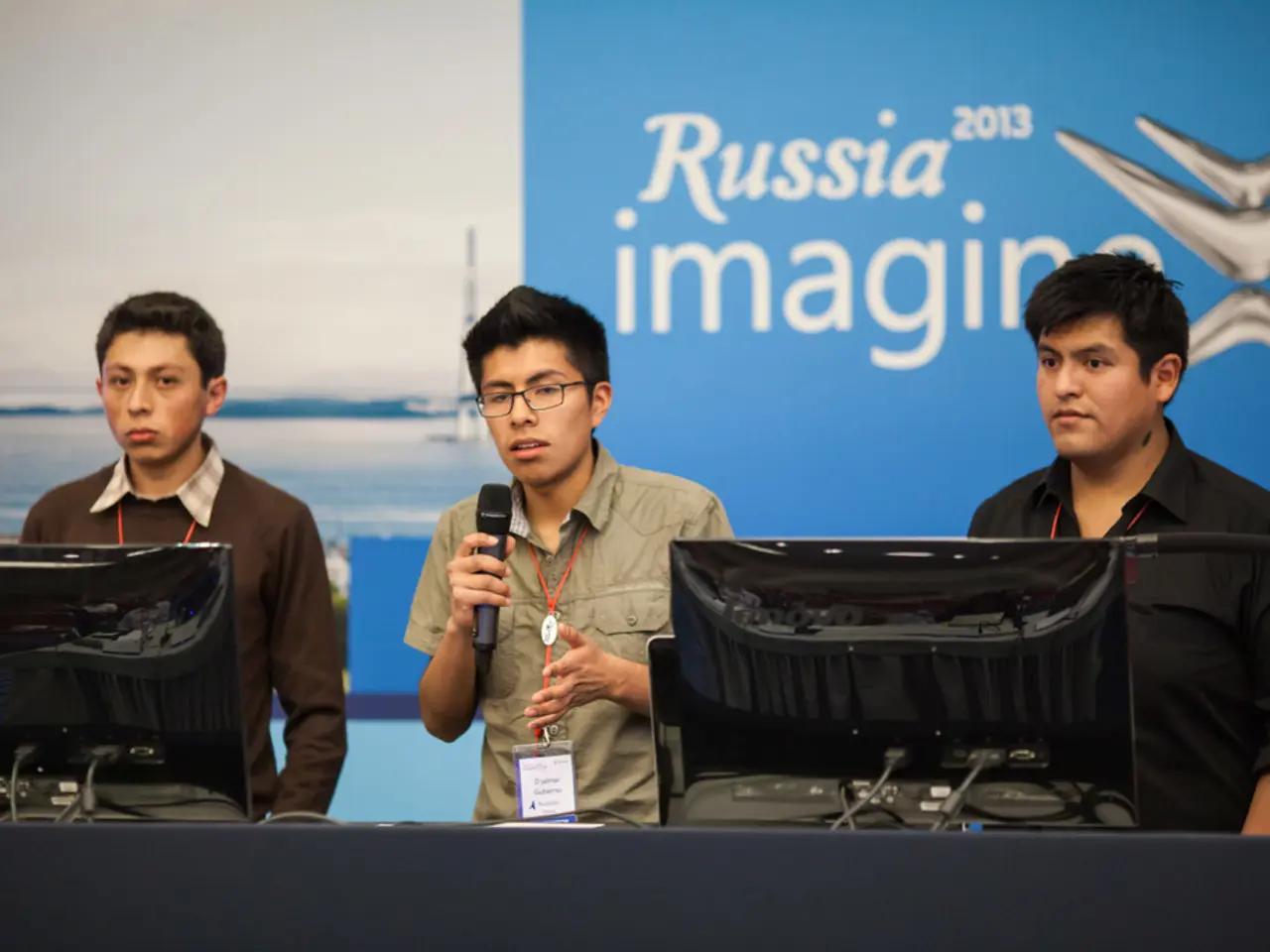China insists on relaxing America's export restrictions on semiconductors intended for artificial intelligence applications
As of August 2025, the United States maintains stringent export restrictions on high-bandwidth memory (HBM) chips and advanced AI chips to China, aiming to curb China's development of cutting-edge AI technologies [1][2].
These export controls have significantly impacted Chinese companies like SMIC and Huawei, restricting their access to critical components necessary for AI chip development.
Key points on the US restrictions and effects:
- The US banned the export of HBM chips to China, a crucial memory technology that accounts for about half the value of advanced AI chips. This ban directly targets Chinese semiconductor companies such as SMIC to hinder their AI chip capabilities [1][2].
- Nvidia’s H20 chip, a version designed with reduced performance for the Chinese market, was also restricted. Although some recent licenses for export to China have been granted, US authorities remain cautious amid congressional calls for stronger oversight [1][2][4].
- China has officially requested the US to ease export controls on HBM and AI chips as part of potential trade negotiations before high-level summits between President Xi Jinping and former President Trump [1][3]. China emphasizes that access to HBM is vital for AI development and reducing reliance on foreign technology.
- Despite China's pressure, there is significant resistance in the US government and Congress, emphasizing national security concerns and risks of empowering China’s military and AI advancements [1][3].
Impact on Companies:
- Huawei: US restrictions on cutting-edge AI components have pressured Huawei to innovate domestically. Recently, Huawei announced advances that may reduce China’s reliance on imported HBM chips, potentially mitigating the impact of US sanctions [5].
- SMIC (Semiconductor Manufacturing International Corporation): SMIC is directly hindered by the restrictions on HBM, limiting its ability to produce advanced AI chips at scale. The lack of access to HBM is a substantial obstacle to competing globally [1].
- Nvidia: Nvidia’s China sales, particularly of specialized chips like the H20, have been restricted but remain an important revenue stream. The US Department of Commerce has issued some export licenses amid ongoing negotiations, but regulatory uncertainty continues [2][4].
In summary, US export restrictions on HBM and advanced AI chips to China remain firmly in place in 2025, continuing to constrain Chinese AI chip development and affecting firms like Huawei, SMIC, and Nvidia. While China pushes diplomatically to ease these restrictions and Huawei is developing domestic alternatives, US policymakers largely prioritize security concerns over easing access [1][2][3][5].
The US export bans on HBM chips, a critical technology for advanced AI chips, and the H20 chip from Nvidia, have directly affected Chinese companies such as Huawei and SMIC, limiting their AI chip development capabilities [1][2]. China has appealed to the US to relax these export controls as part of potential trade negotiations [1][3], but the US government remains cautious due to national security concerns and risks of empowering China's military and AI advancements [1][3]. Meanwhile, Huawei is innovating domestically to reduce China’s dependence on imported HBM chips, potentially mitigating the impact of US sanctions [5].




